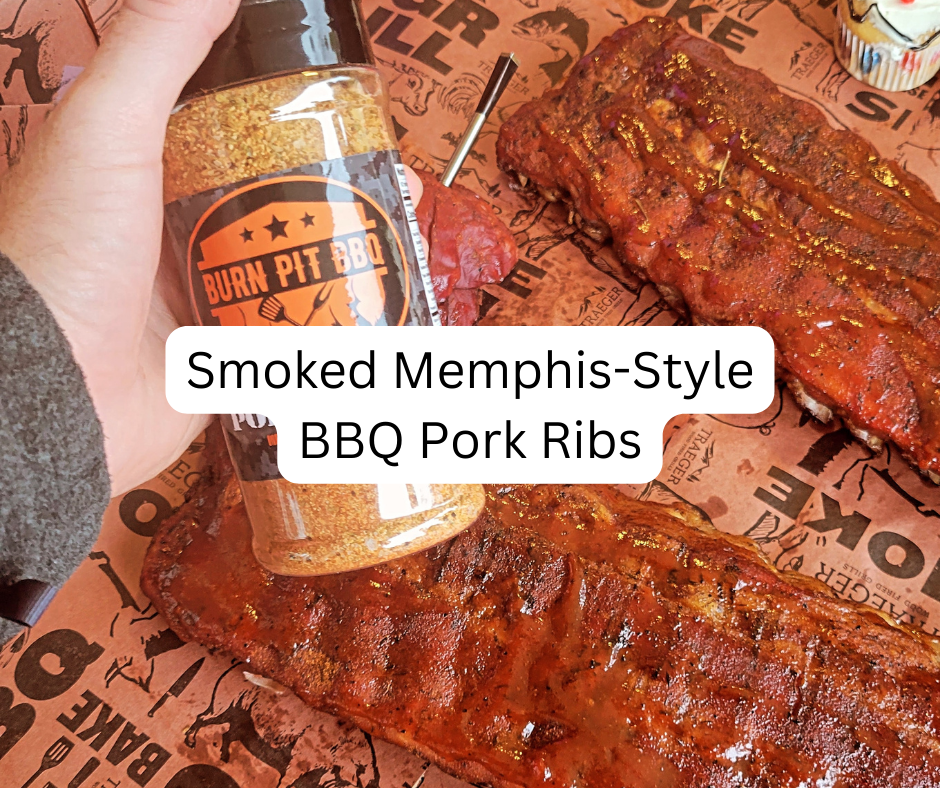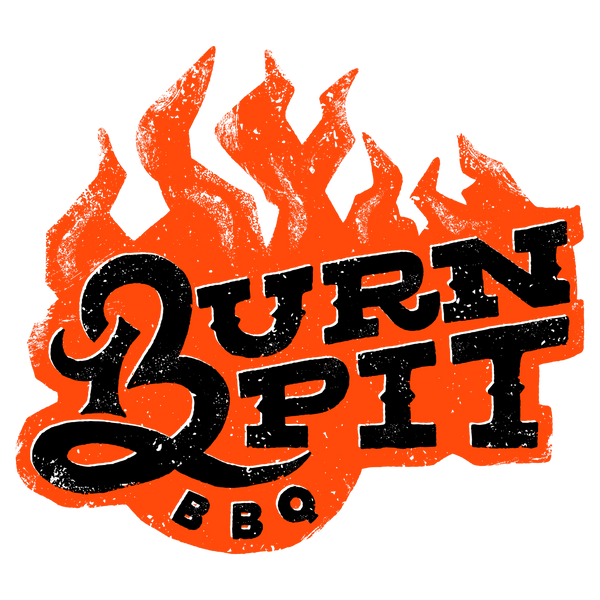
Smoked Memphis-Style BBQ Pork Ribs
Share
Memphis-style BBQ is renowned for its distinct flavors and techniques that have developed over generations in the city of Memphis, Tennessee. Here's what typically characterizes Memphis-style BBQ, and why the recipe we've created can be considered "Memphis-style":
-
Dry Rub: Memphis-style BBQ ribs often feature a dry rub instead of a wet marinade or sauce. This dry rub typically consists of a blend of spices such as paprika, garlic powder, onion powder, black pepper, and sometimes a hint of cayenne for heat. In our recipe, we used our Pop Smoke Memphis-style BBQ rub to achieve this authentic flavor profile.
-
Slow Smoking: Smoking is a cornerstone of Memphis-style BBQ. Ribs are slow-cooked over low heat for several hours, allowing the flavors of the dry rub to penetrate the meat and infuse it with smoky goodness. In our recipe, we smoked the ribs at 225°F (110°C) for 4-5 hours, following the traditional slow-smoking method.
-
Wood Choice: In Memphis, hickory wood is commonly used for smoking ribs, imparting a robust, slightly sweet flavor to the meat. Other woods such as oak or pecan may also be used. The choice of wood contributes significantly to the overall taste of the ribs.
-
Optional Sauce: While Memphis-style BBQ ribs are typically served dry, meaning without sauce, some variations do include a tangy tomato-based BBQ sauce served on the side. This sauce is often thinner and less sweet than sauces from other BBQ regions like Kansas City or Texas. In our recipe, we included the option to add BBQ sauce as a glaze towards the end of cooking for those who prefer a saucier finish.
Overall, Memphis-style BBQ ribs are all about showcasing the natural flavors of the meat and the skillful application of a well-balanced dry rub, complemented by slow smoking over wood for that authentic, smoky taste.
Smoked Memphis-Style BBQ Pork Ribs:
Ingredients:
- 2 racks of pork ribs
- ¼ cup Pop Smoke Memphis-style BBQ rub
- 1 cup BBQ sauce (optional, for serving)
Instructions:
- Preparation: Preheat your smoker to 225°F (110°C). If your ribs have a membrane on the back, remove it by sliding a butter knife under the membrane, then grab it with a paper towel and pull it off.
- Seasoning: Liberally season both sides of the ribs with the Memphis-style BBQ rub. Make sure to massage the rub into the meat, ensuring even coverage.
-
Smoking: Once the smoker is preheated, place the seasoned ribs directly on the grill grates, bone side down. Close the lid and let the ribs smoke for about 4-5 hours, maintaining a temperature of around 225°F (110°C).

-
Checking: After about 3 hours, check the ribs for tenderness. They should have a nice bark and the meat should be starting to pull away from the bones. If you want, you can also spritz the ribs with apple juice or apple cider vinegar every hour to keep them moist. Pork ribs are generally considered done when they reach an internal temperature of around 195°F to 205°F (90°C to 96°C). This ensures that the connective tissues have broken down sufficiently, resulting in tender, juicy meat.
-
Optional BBQ Sauce Glaze: If you prefer your ribs saucy, about 30 minutes before the ribs are done, you can brush them with your favorite BBQ sauce. This will add a sweet and tangy flavor and create a sticky glaze.
-
Resting: Once the ribs are done, remove them from the smoker and let them rest for a few minutes. This allows the juices to redistribute and ensures tender, juicy meat.
-
Serving: Slice the ribs between the bones and serve them with extra BBQ sauce on the side if desired. They're perfect alongside coleslaw, baked beans, or cornbread for a classic Memphis BBQ feast.

These Smoked Memphis-Style BBQ Pork Ribs are sure to be a hit at any gathering or backyard cookout, showcasing the rich flavors of your pre-bought Memphis-style BBQ rub. Enjoy!

2 comments
Tried these tonight. They turned out great!! Very close to what we had in Memphis. Pop smoke is awesome!!!!!
Going to make these for my daughter this weekend.